© 2025 MJH Life Sciences™ , Patient Care Online – Primary Care News and Clinical Resources. All rights reserved.
Midyear Pain Quiz for Primary Care
What's your pain IQ? Find out with this 12-question round-up from popular Patient Care pain quizzzes.
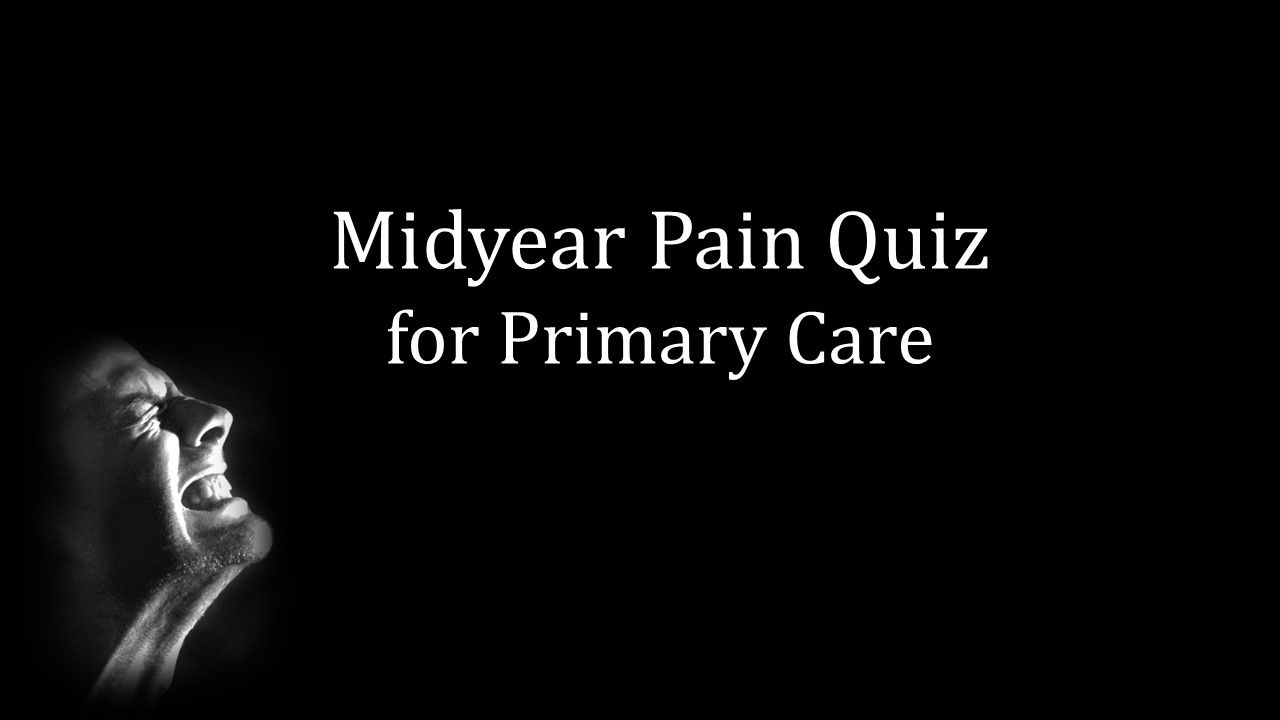
Our midyear quiz challenges you with 12 questions selected from the last 6 months of Patient Care quizzes on pain and pain management.
Click through the slides above for your 6-month assessment, then revisit each quiz for refreshers using the links provided with the final slide.
Image: ©Sjstudio/Shutterstock.com
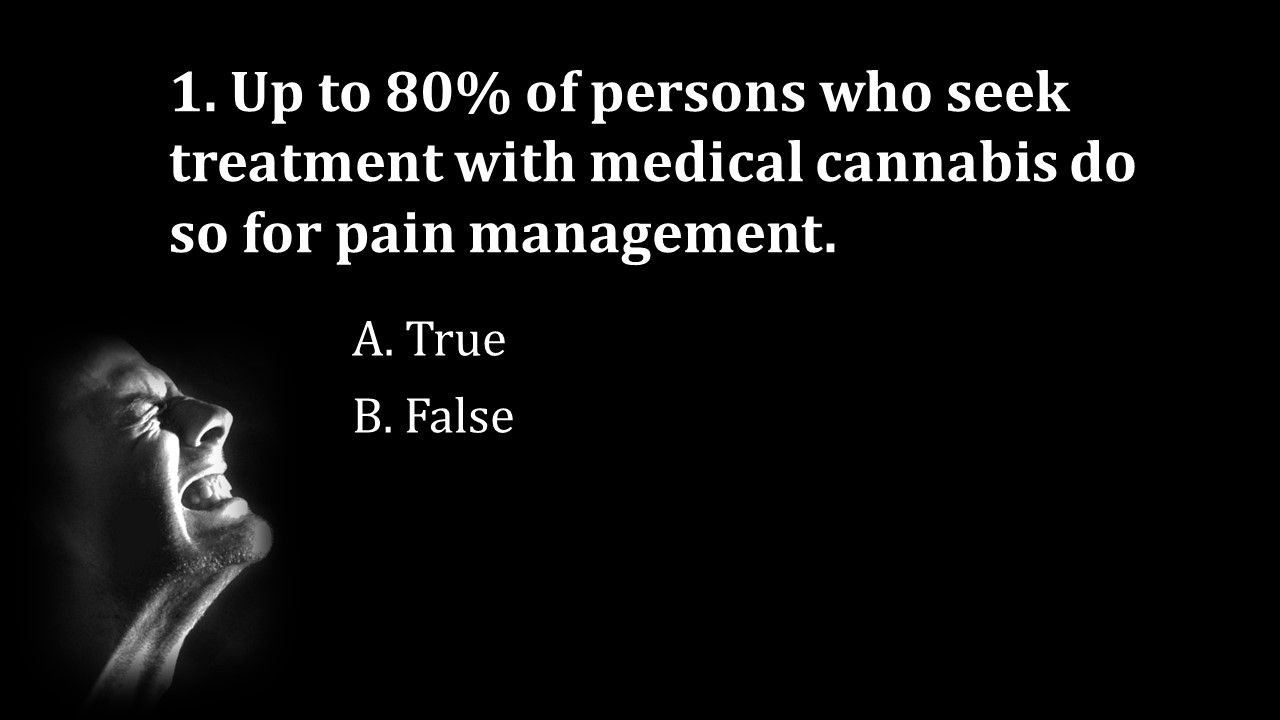
Question 1: True or false? Up to 80% of persons who seek treatment with medical cannabis do so for pain management.
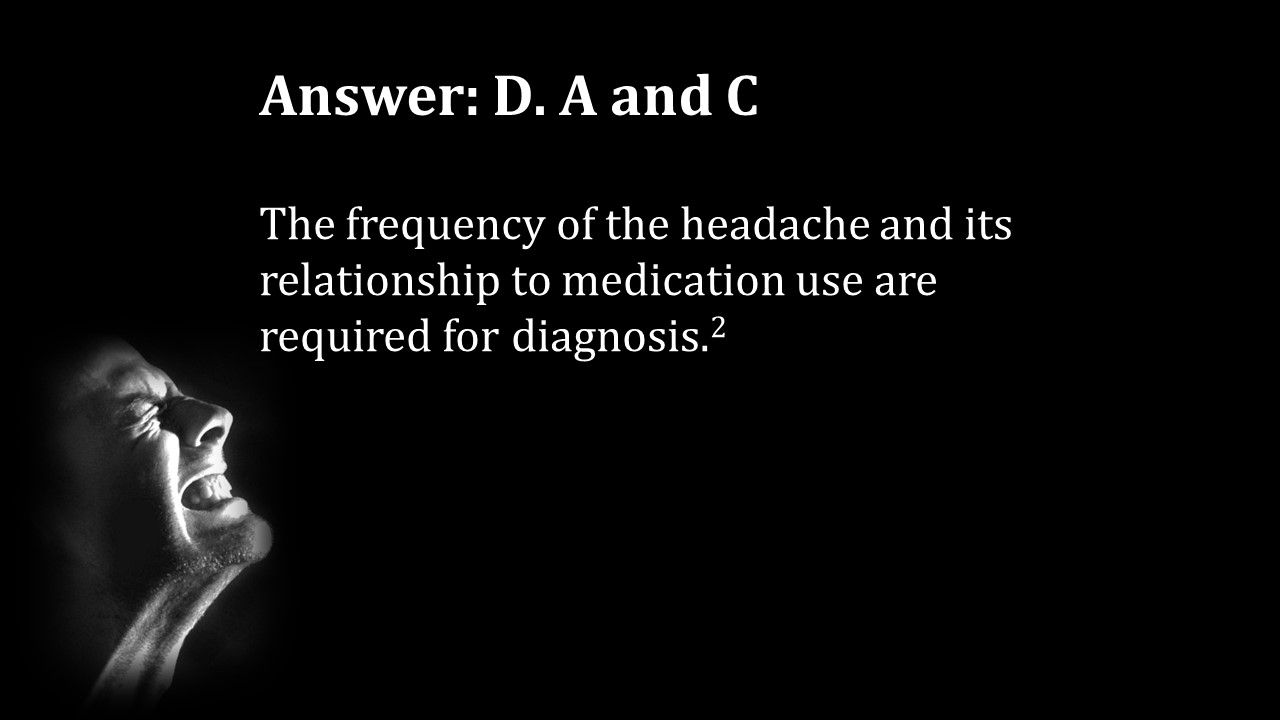
Answer: D. A and C. The frequency of the headache and its relationship to medication use are both required for diagnosis.2
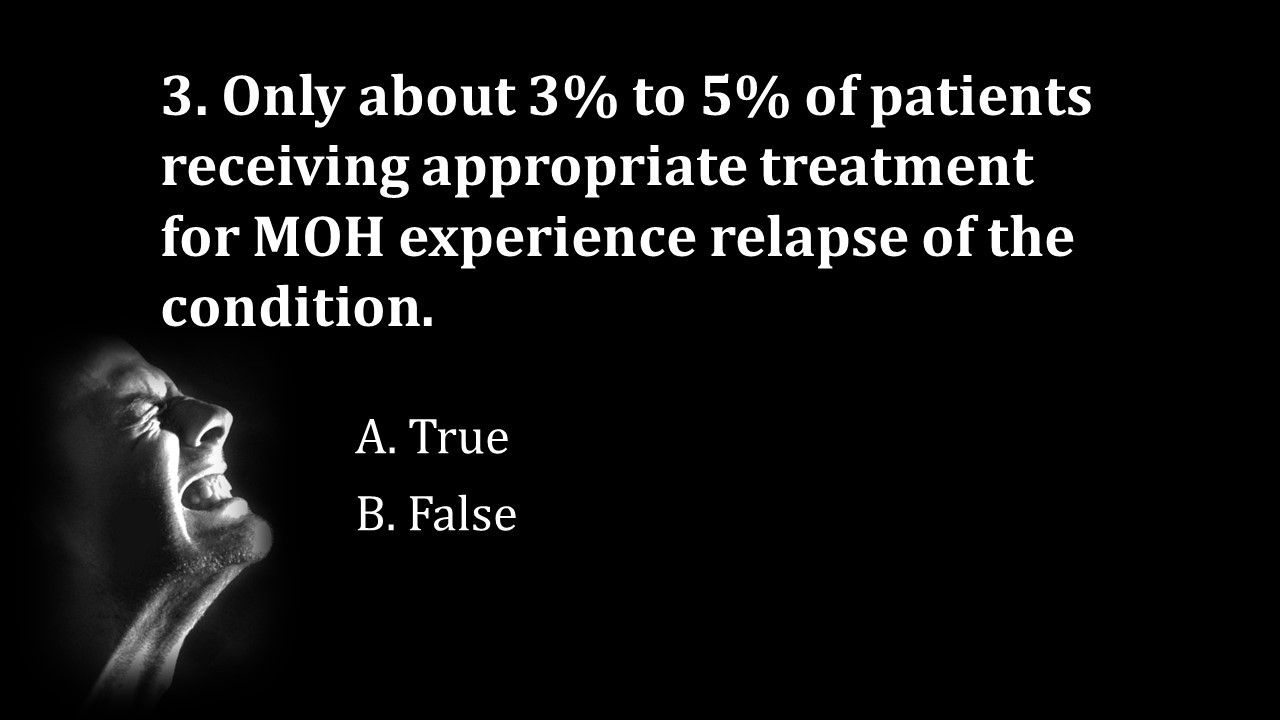
Question 3: True or false? Only about 3% to 5% of patients receiving appropriate treatment for MOH experience relapse of the condition.
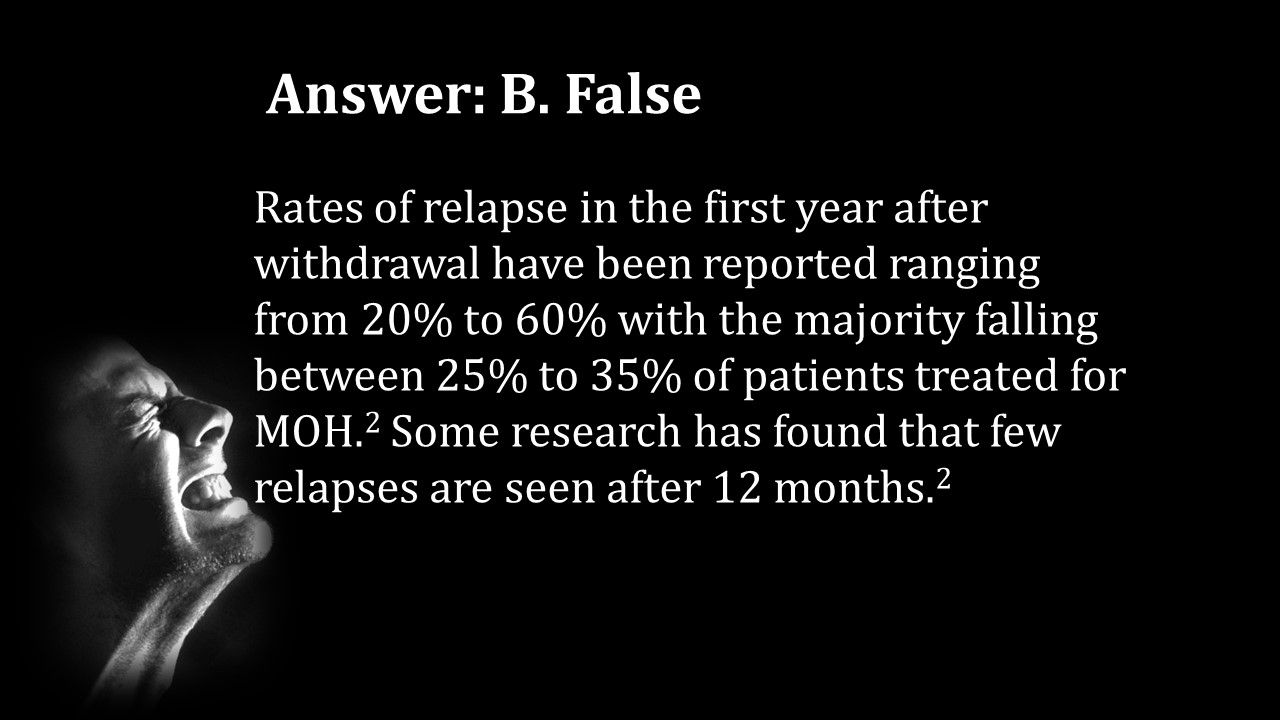
Answer: B. False. Rates of relapse in the first year after withdrawal have been reported ranging from 20% to 60% with the majority falling between 25% to 35% of patients treated for MOH.2 Some research has found that few relapses are seen after 12 months.2
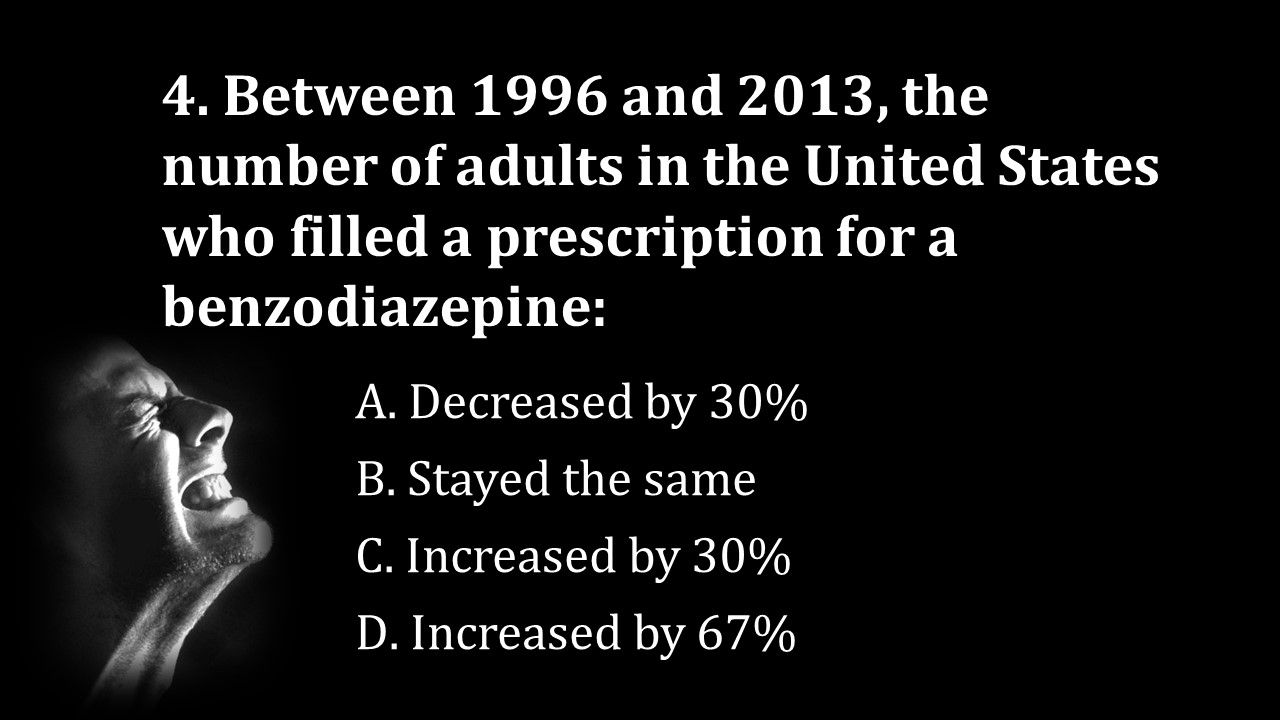
Question 4: Between 1996 and 2013, the number of adults in the US who filled a prescription for a benzodiazepine decreased, stayed the same, or increased?
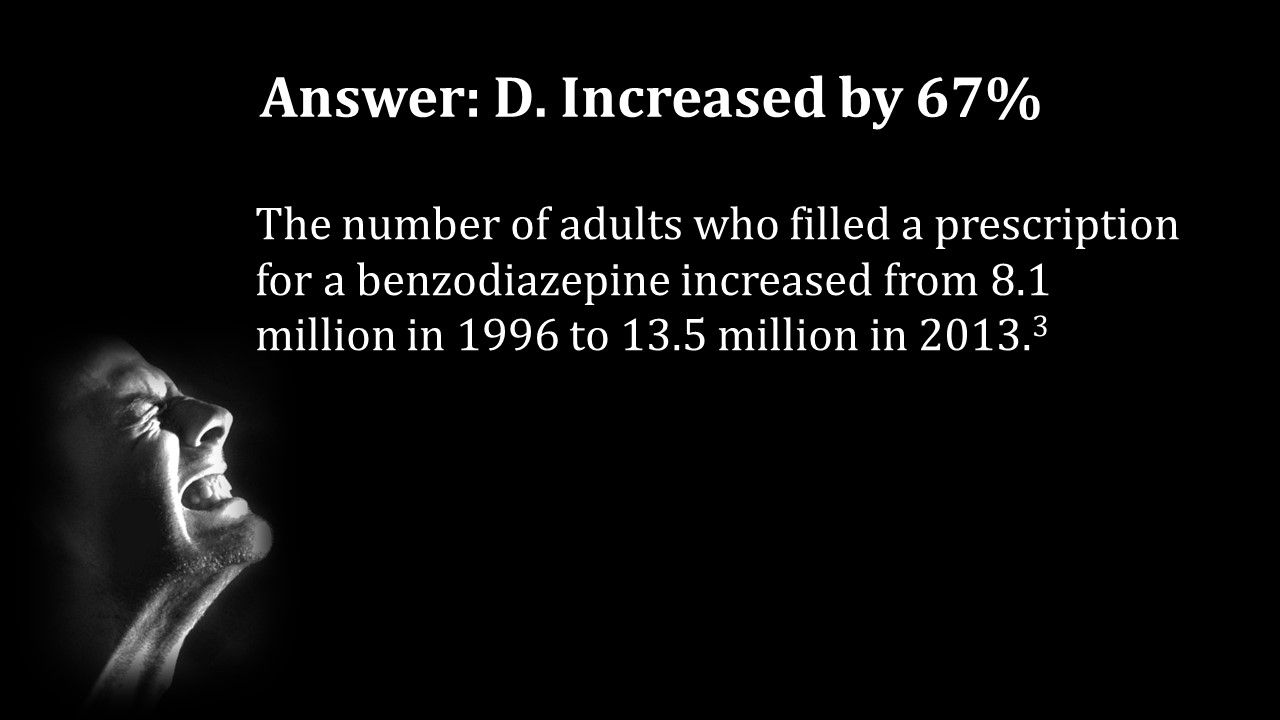
Answer: D. Increased by 67%. The number of adults who filled a prescription for a benzodiazepine increased from 8.1 million in 1996 to 13.5 million in 2013.3
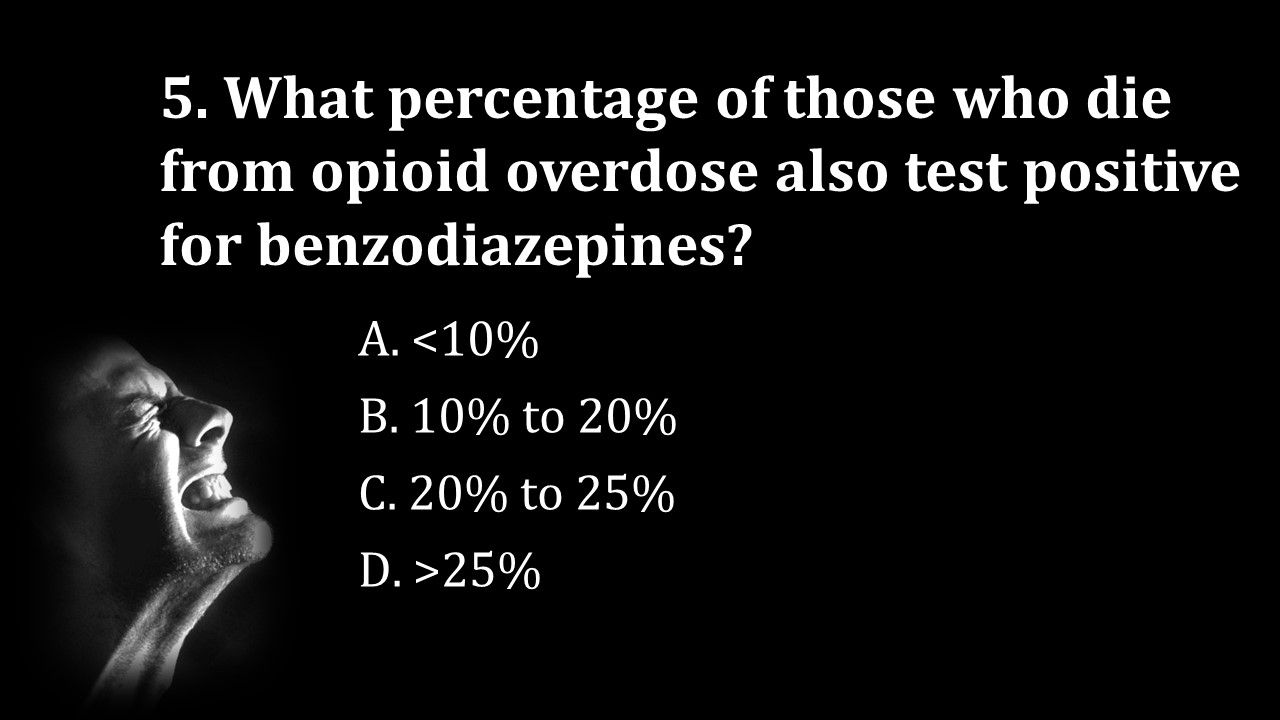
Question 5: What percentage of those who die from opioid overdose also test positive for benzodiazepines?
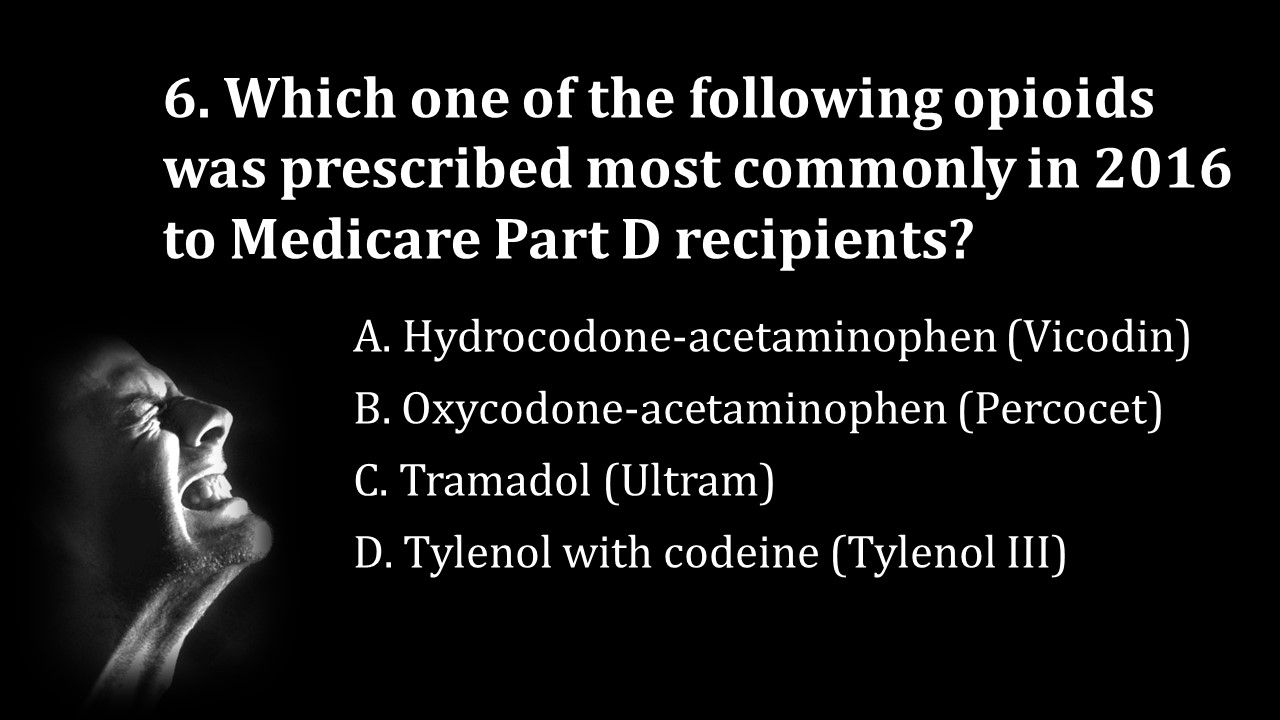
Question 6: Which of the above opioids was prescribed most commonly in 2016 to Medicare Part D recipients?
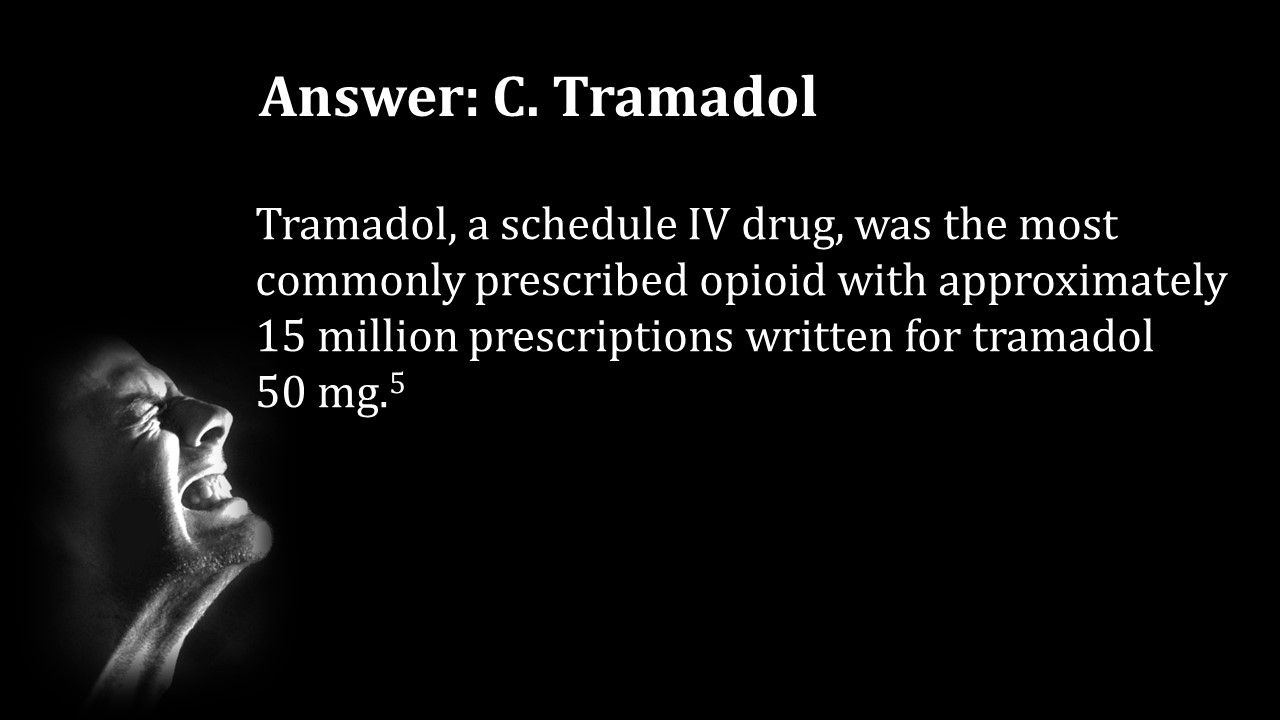
Answer: C. Tramadol. Tramadol, a schedule IV drug, was the most commonly prescribed opioid with approximately 15 million prescriptions written for tramadol 50 mg.5
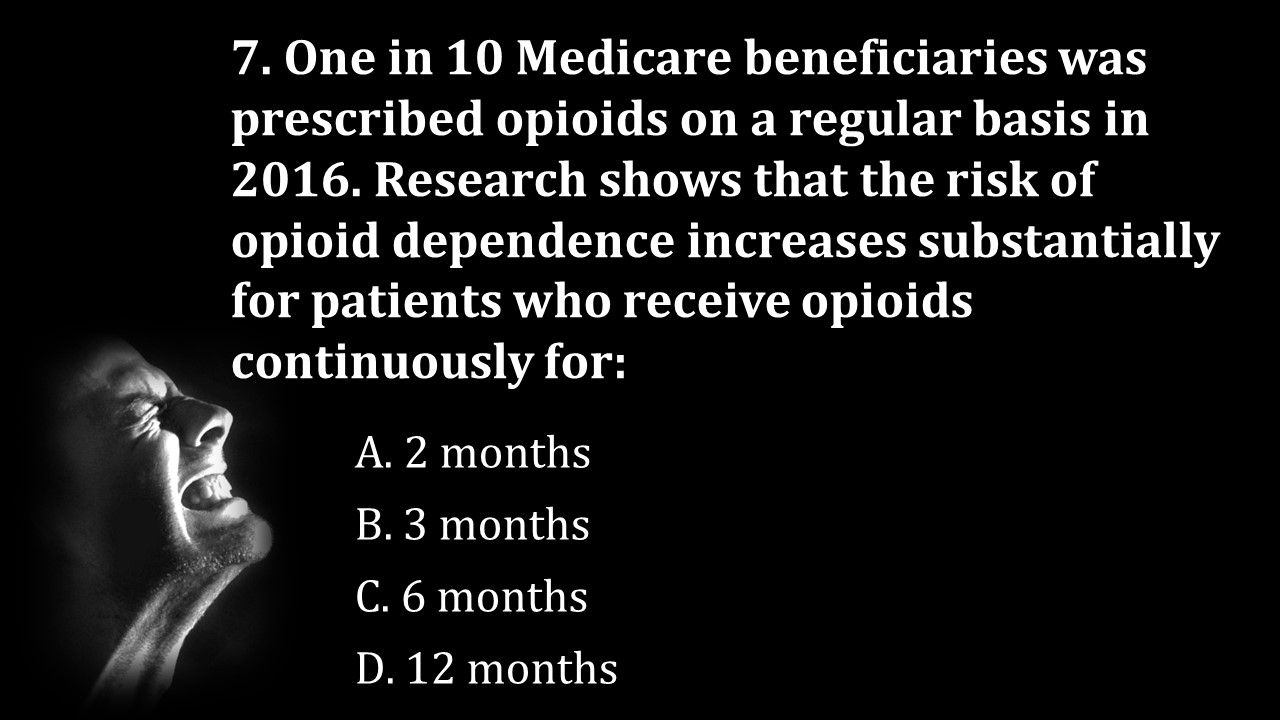
Question 7: One in 10 Medicare beneficiaries was prescribed opioids on a regular basis in 2016. Research shows that the risk of opioid dependence increases substantially for patients who receive opioids continuously for how many months?
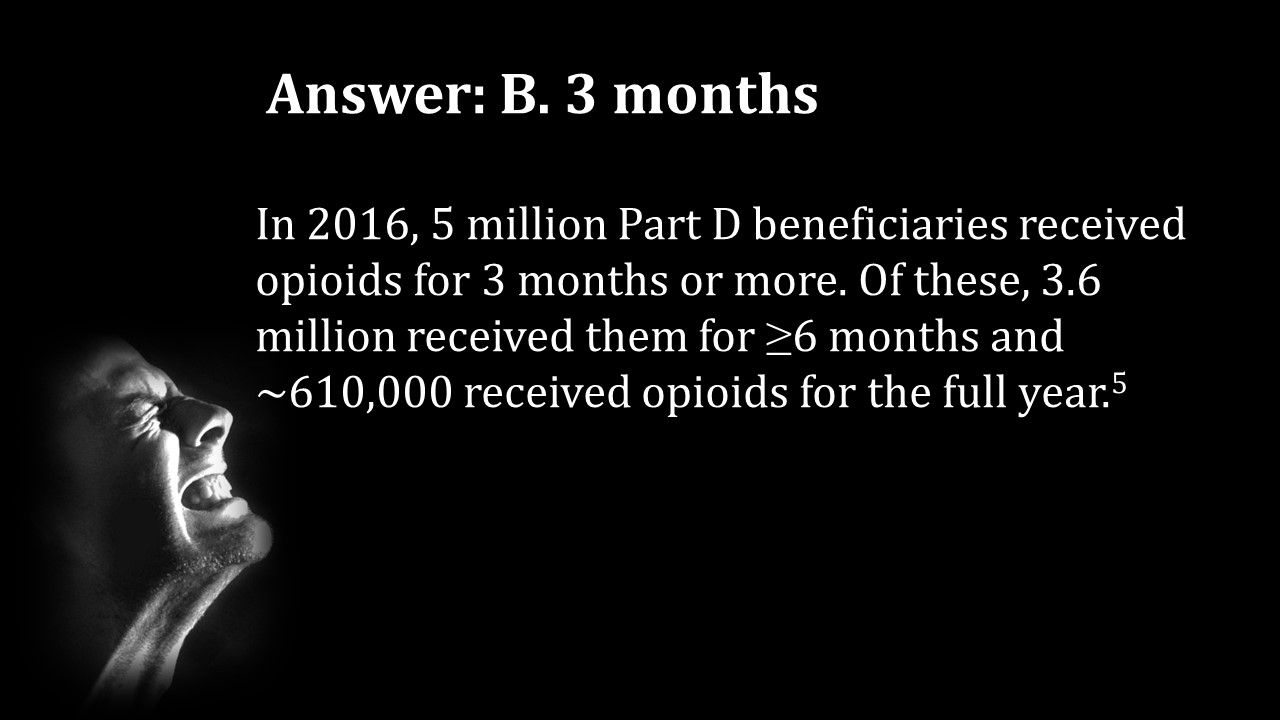
Answer: B. 3 months. In 2016, 5 million Part D beneficiaries received opioids for 3 months or more. Of these, 3.6 million received them for ≥6 months and ~610,000 received opioids for the full year.5
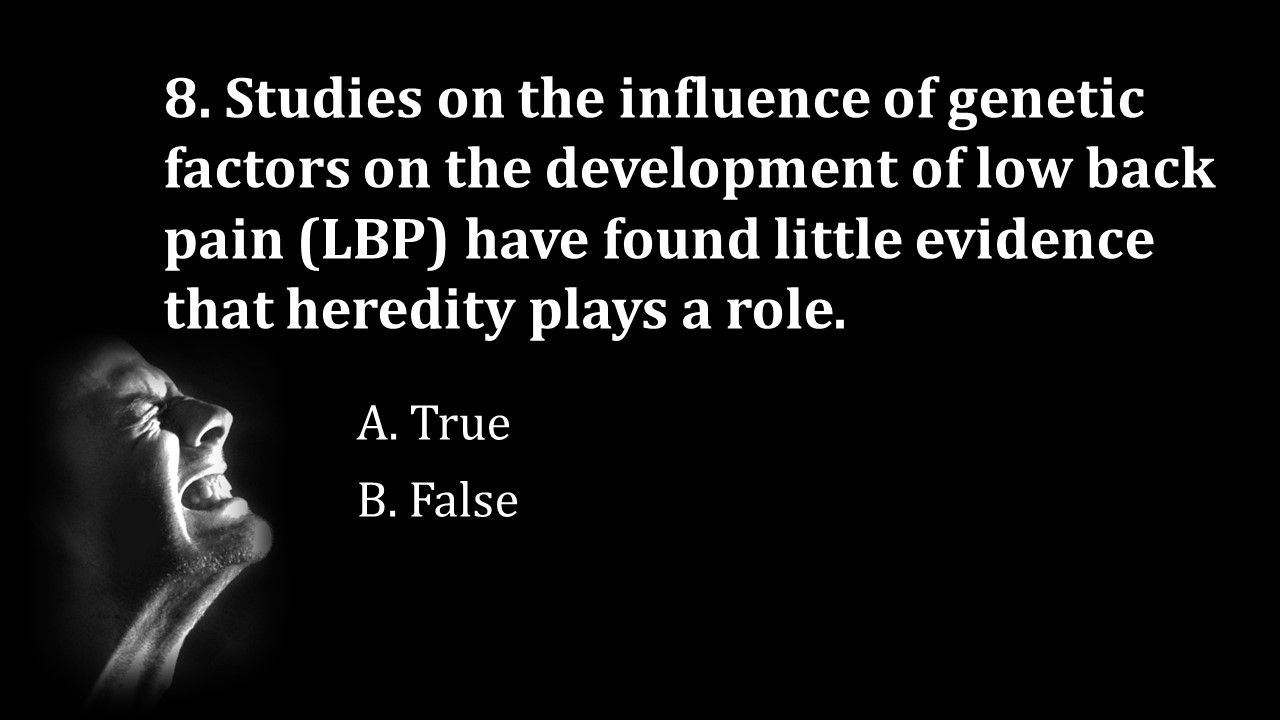
Question 8: True or false? Studies on the influence of genetic factors on the development of low back pain (LBP) have found little evidence that heredity plays a role.
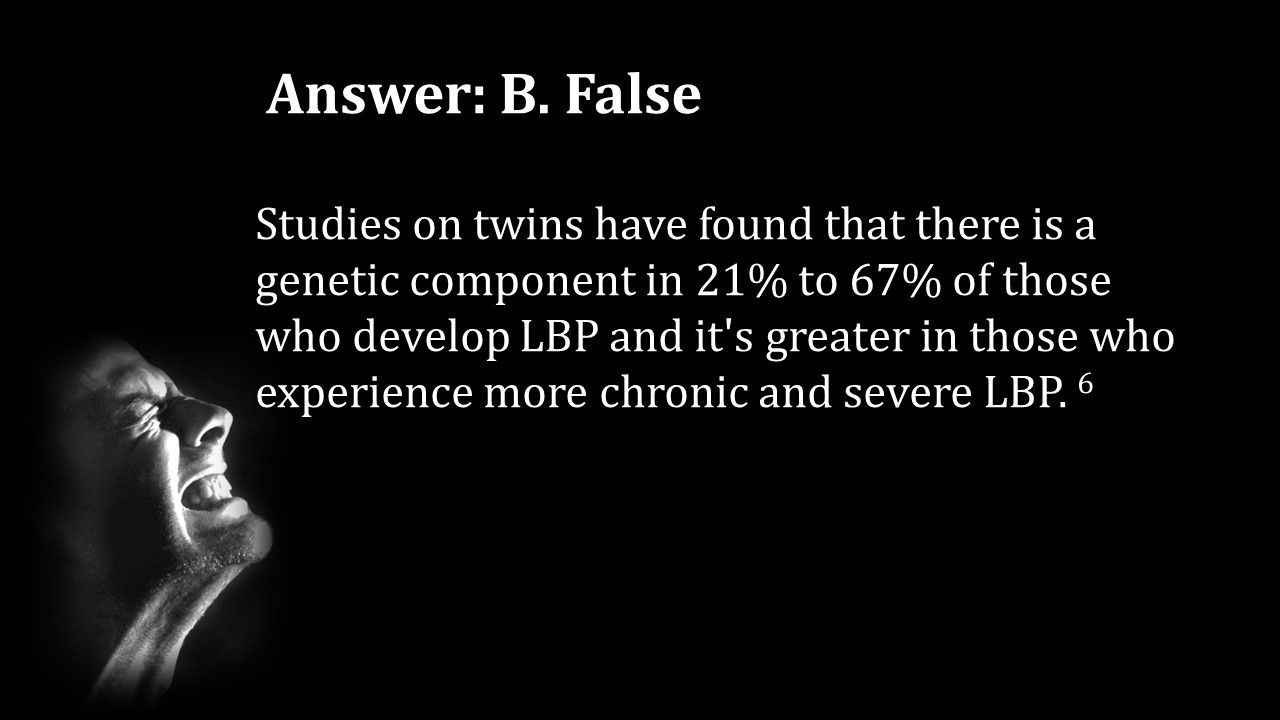
Answer: B. False. Studies on twins have found that there is a genetic component in 21% to 67% of those who develop LBP and it's greater in those who experience more chronic and severe LBP.6
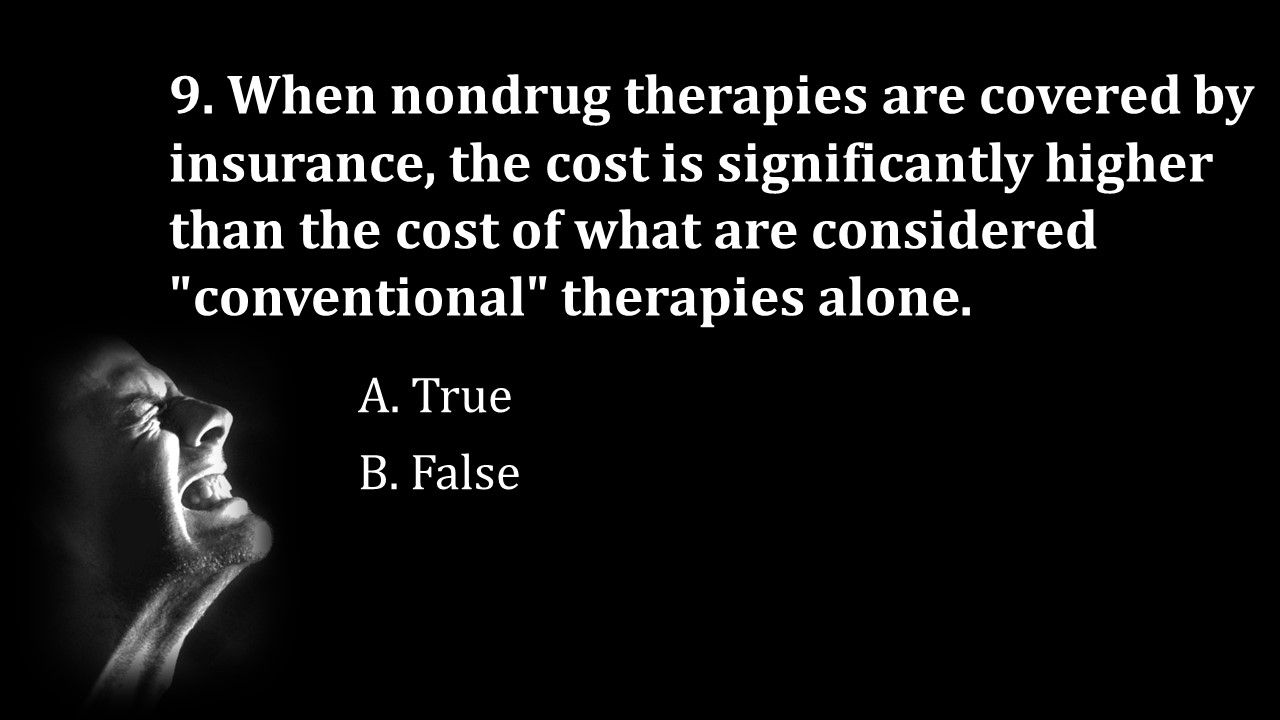
Question 9: True or false? When nondrug therapies are covered by insurance, the cost is significantly higher than the cost of what are considered "conventional" therapies alone.
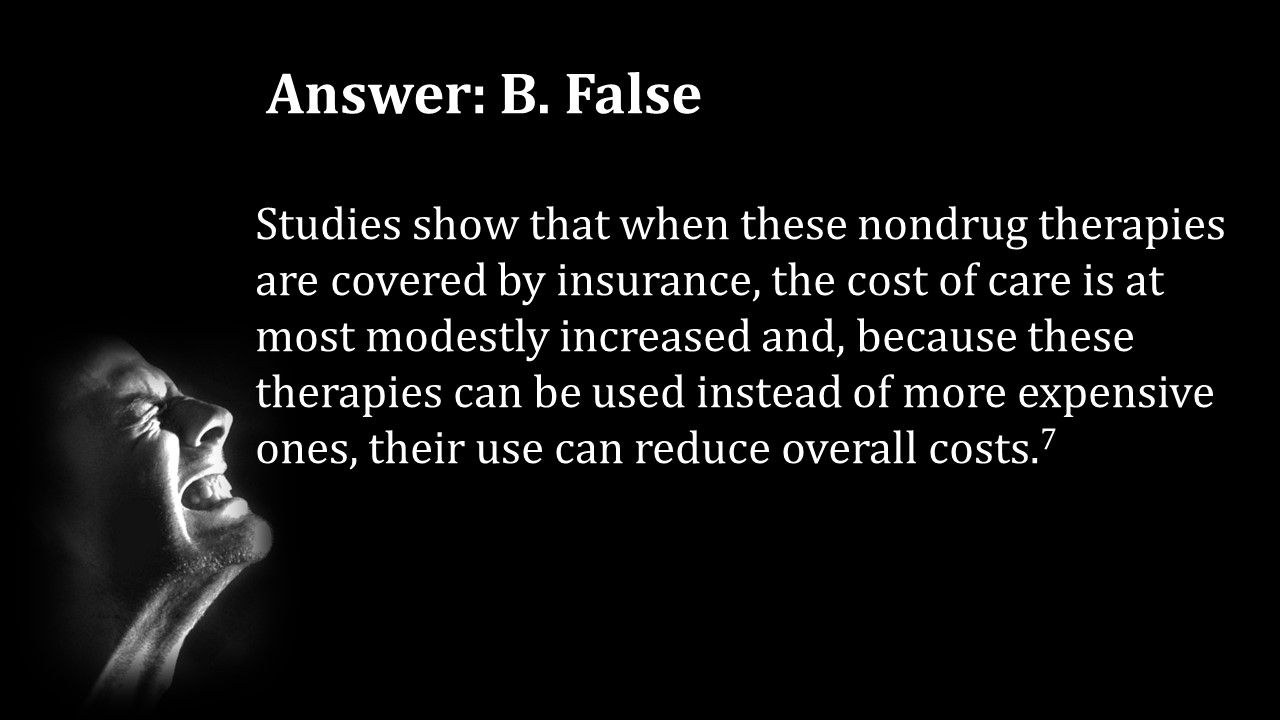
Answer: B. False. Studies show that when these nondrug therapies are covered by insurance, the cost of care is at most modestly increased and, because these therapies can be used instead of more expensive ones, their use can reduce overall costs.7
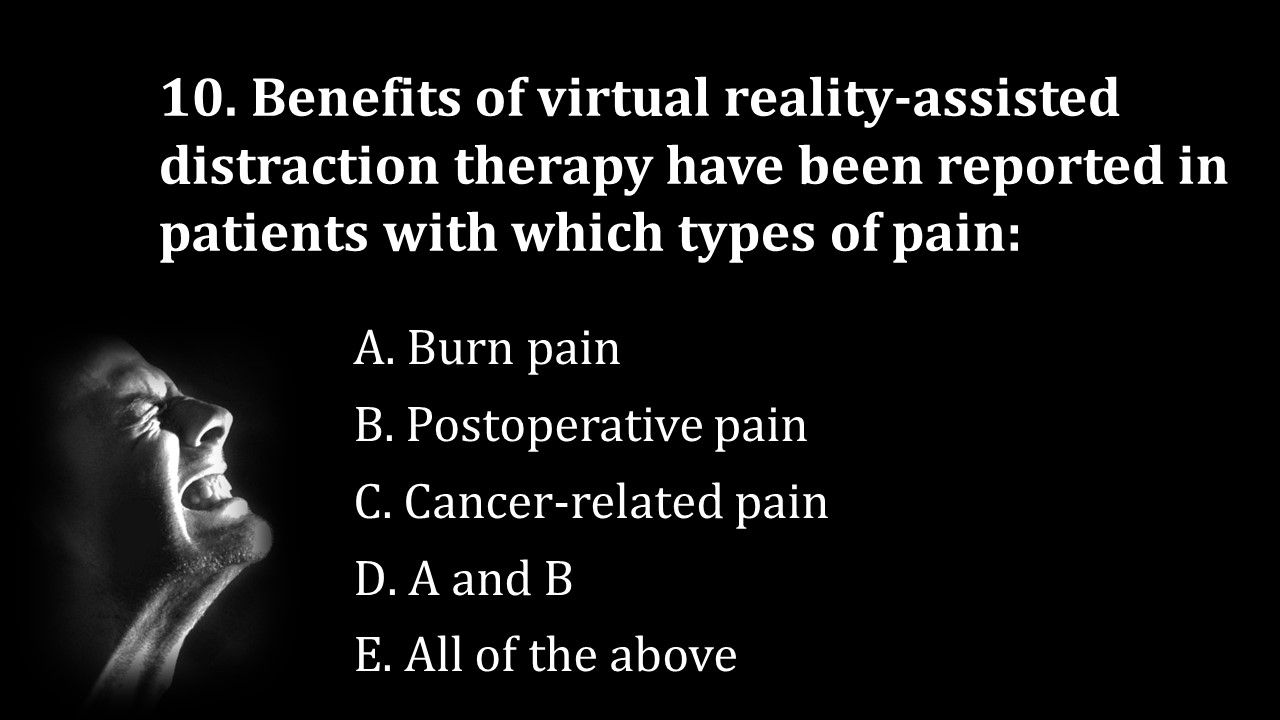
Question 10: Benefits of virtual reality-assisted distraction therapy have been reported in patients with which types of pain?
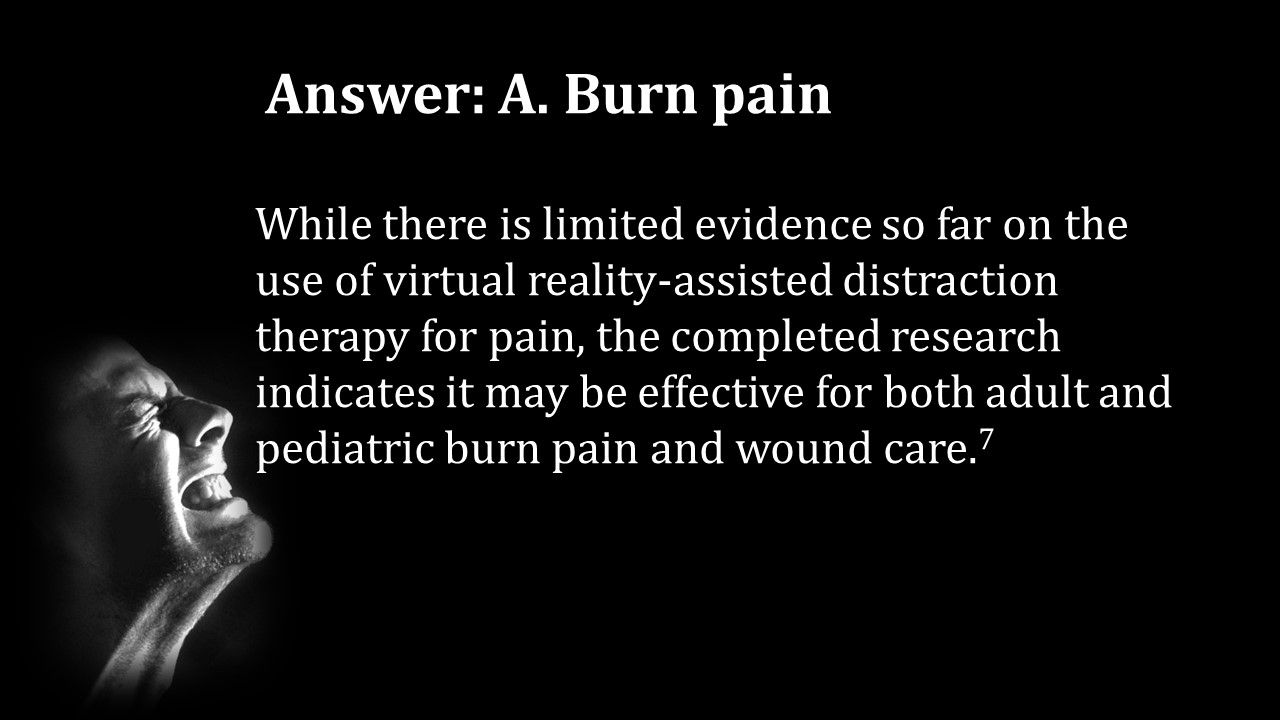
Answer: A. Burn pain. While there is limited evidence so far on the use of virtual reality-assisted distraction therapy for pain, the completed research indicates it may be effective for both adult and pediatric burn pain and wound care.7
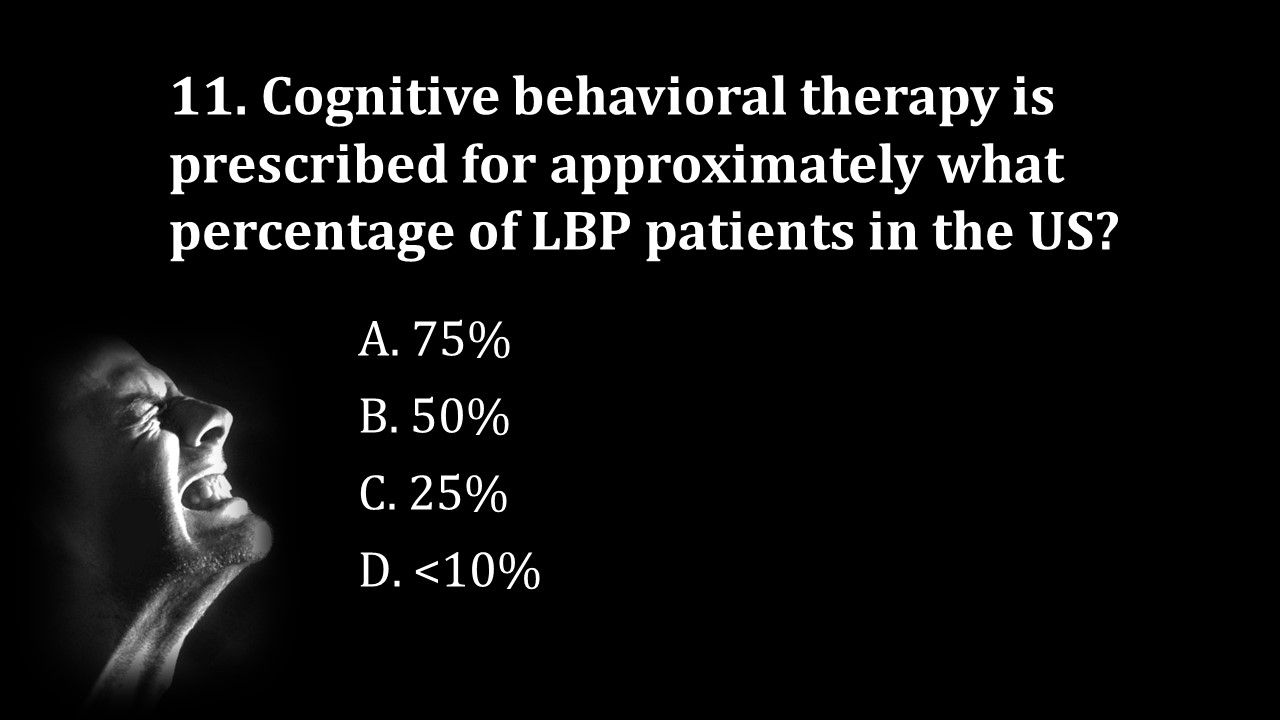
Question 11: Cognitive behavioral therapy is prescribed for approximately what percentage of LBP patients in the US?
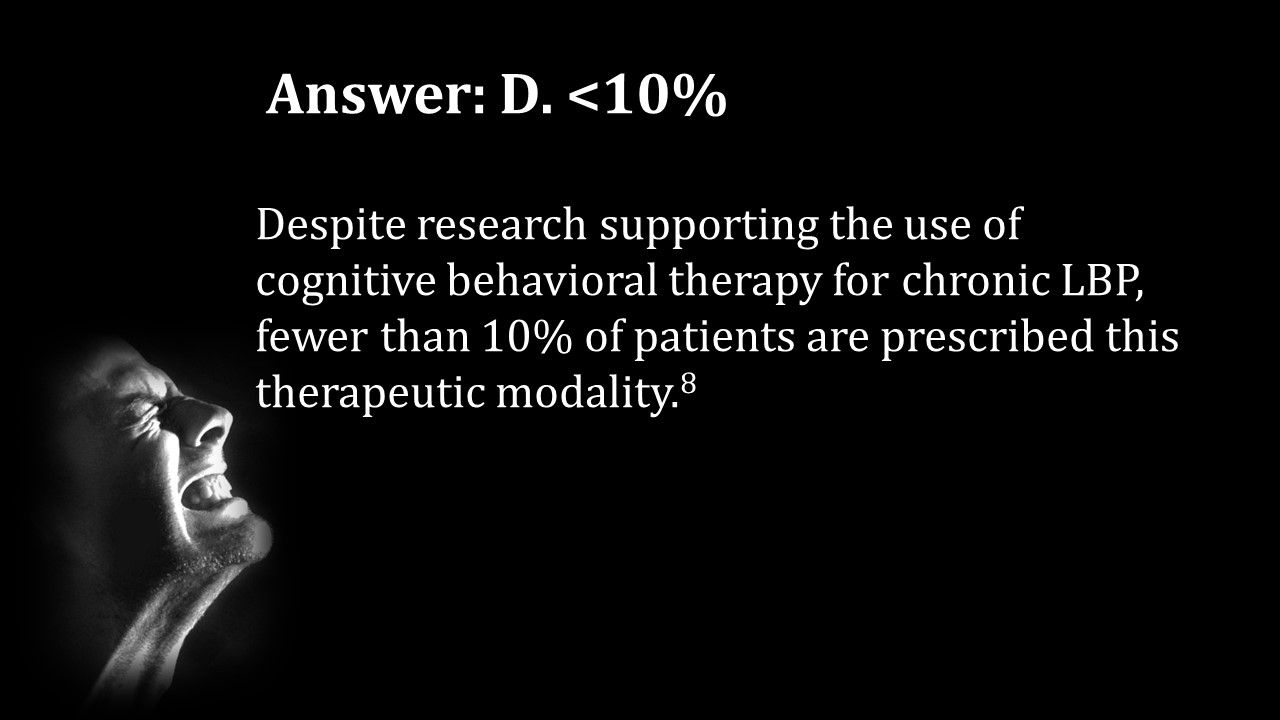
Answer: D. <10%. Despite research supporting the use of cognitive behavioral therapy for chronic LBP, fewer than 10% of patients are prescribed this therapeutic modality.8
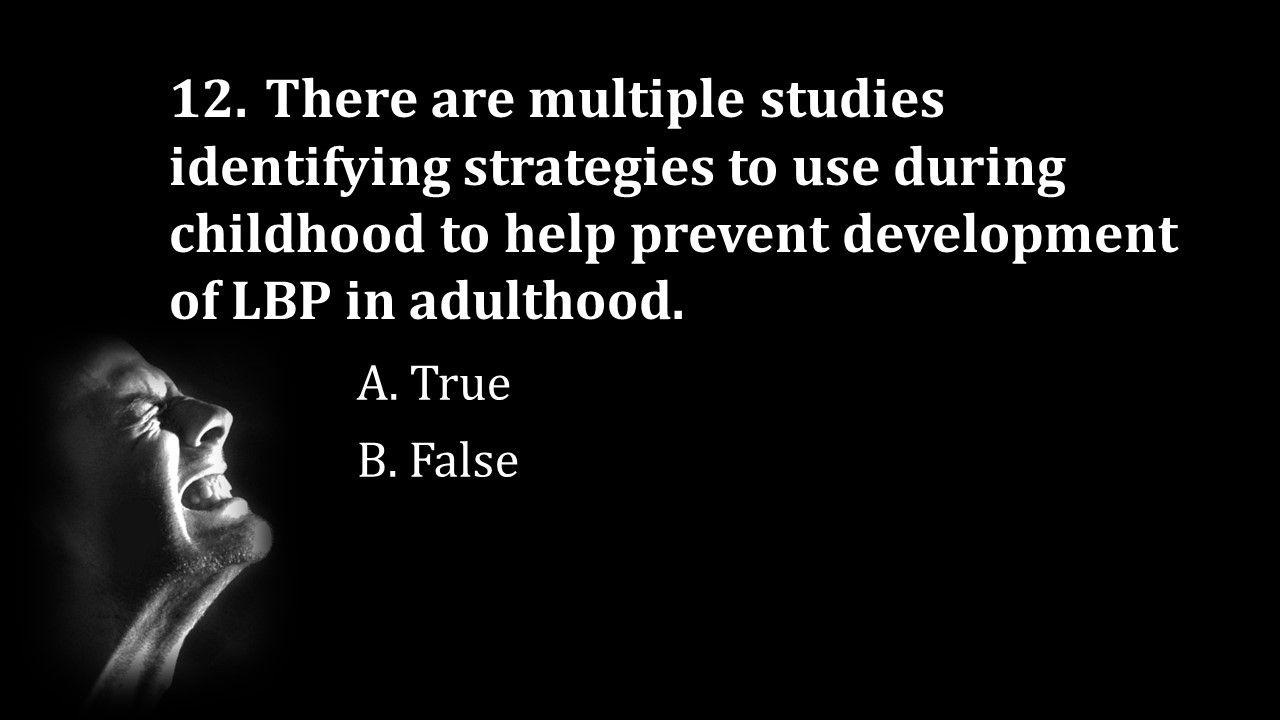
Question 12: True or false? There are multiple studies identifying strategies to use during childhood to help prevent development of LBP in adulthood.
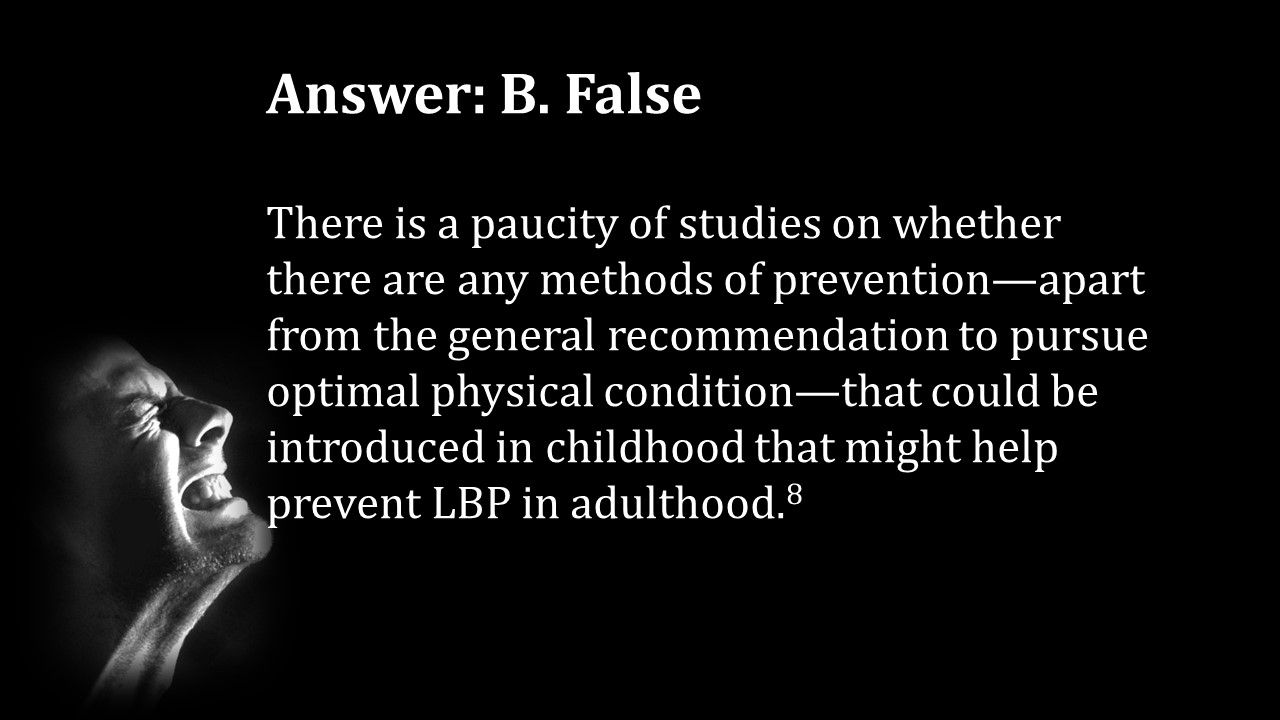
Answer: B. False. There is a paucity of studies on whether there are any methods of prevention-apart from the general recommendation to pursue optimal physical condition-that could be introduced in childhood that might help prevent LBP in adulthood.8
More Patient Care Pain Quizzes
- Low Back Pain: Do Guidelines Get it Right?
- Nonpharmacologic Treatment of Pain: A 12-Question Quiz
- Low Back Pain: Dissecting the Disability
- Opioids & Medicare Part D: A Quiz on Questionable Prescribing
- Benzodiazepines and Opioids: A Quiz on the Dangerous Combination
- Medication Overuse Headache: A Short Test
- Treating Acute Migraine in the ED - What Works?
- Cannabis and Chronic Pain: True or False?
Related Content:






